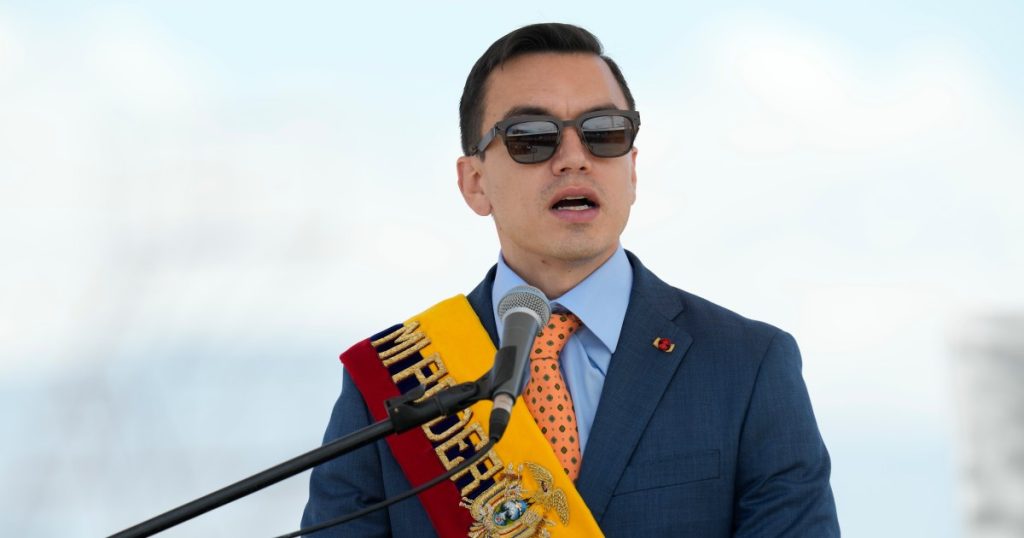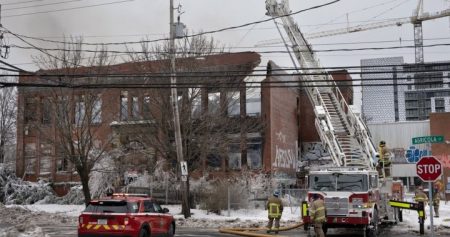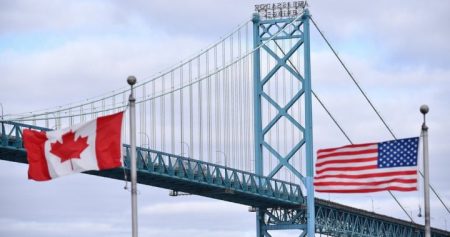A Young President Faces a New Challenge
In Ecuador, President Daniel Noboa, at just 37 years old, is confronting a significant test as he seeks a full four-year term. Having assumed office 18 months ago through a snap election, Noboa now stands at a critical juncture, aiming to consolidate his leadership in a nation grappling with crime, economic instability, and social unrest. His initial ascension to power followed the resignation of his predecessor, Guillermo Lasso, under the constitutional mechanism "muerte cruzada," which prematurely ended Lasso’s term and dissolved the legislature, prompting swift elections. Noboa’s victory marked a new era, yet his tenure has been a sprint rather than a marathon, completing the remainder of Lasso’s term. Now, he aspires to lead Ecuador into a future where stability and security are paramount.
A Crowded Race with Familiar Faces
The upcoming election is a shared stage featuring 15 candidates, each vying for the presidency. Among them, Luisa Gonzalez emerges as Noboa’s primary challenger, echoing their 2023 contest. Gonzalez, a leftist, leads the Citizen Revolution party, founded by former President Rafael Correa, and is determined to wrestle leadership from Noboa’s grip. Other notable competitors include Jan Topic, advocating a "mano dura" approach to crime, and Leonidas Iza, who champions Indigenous rights. The race also sees the participation of Andrea Gonzalez, the former running mate of slain anti-corruption candidate Fernando Villavicencio, whose 2023 assassination shocked the nation. These candidates reflect Ecuador’s diverse political landscape, each promising solutions to the nation’s woes.
Ecuador’s Electoral System: How It Works
Ecuador’s electoral process is a dual-round system designed to ensure a decisive mandate. The first round, held on February 9, requires a candidate to secure over 50% of the vote or gain a 10% lead over the second-place contender to win outright. If this threshold isn’t met, a runoff on April 13 will determine the winner. Concurrently, all 151 National Assembly seats are up for grabs, expanding from 137, with Noboa’s National Democratic Action party anticipated to make significant gains. This election is pivotal, not only for the presidency but also for the legislative landscape, which will influence the nation’s future policies.
The Issues Driving the Election
Ecuador’s electorate is primarily driven by pressing concerns over crime, economic hardship, and basic services like electricity. Recent blackouts have exacerbated frustrations, while skyrocketing living costs and unemployment compound the populace’s struggles. A January poll highlighted crime as the leading concern, surpassing employment issues by a 14-point margin. This focus on security underscores the public’s anxiety, with many seeking radical solutions. Noboa’s tough-on-crime stance has resonated, yet critics argue that systemic issues of corruption and inequality remain unaddressed, potentially undermining long-term stability.
Why Violence Has Become a Major Concern
Ecuador, once a beacon of peace in a turbulent region, now grapples with escalating violence. Geographically sandwiched between cocaine powerhouses Colombia and Peru, Ecuador has become a transit hub for drug traffickers. The COVID-19 pandemic exacerbated this crisis, pushing criminal groups into Ecuador’s territories and crippling its economy. Unemployment and despair among the youth have provided fertile ground for criminal recruitment. Noboa has lambasted predecessors for allowing drug production to take root, with coca cultivation detected on over 2,000 hectares. The nation’s murder rate has soared, making it South America’s most violent country, with 7,000 murders in 2023. This surge in violence has laid bare the state’s inability to respond effectively and raised suspicions of official complicity in criminal activities.
The Path Forward: Tough on Crime, But Is It Enough?
In response to the crisis, Ecuador has embraced stringent measures, including military involvement in public security and harsher penalties for drug offenses. Noboa has declared war on crime, expanding military powers in law enforcement. While this approach has slightly reduced murder rates, abuses of power, such as the abduction and killing of four youths by military personnel, have sparked outrage. Experts caution that without addressing corruption and inequality, security measures alone are insufficient. The electorate, while supportive of tough policies, acknowledges the need for comprehensive solutions. As the election looms, Ecuador stands at a crossroads, where both immediate security and long-term structural reforms are crucial for safely navigating its uncertain future.












